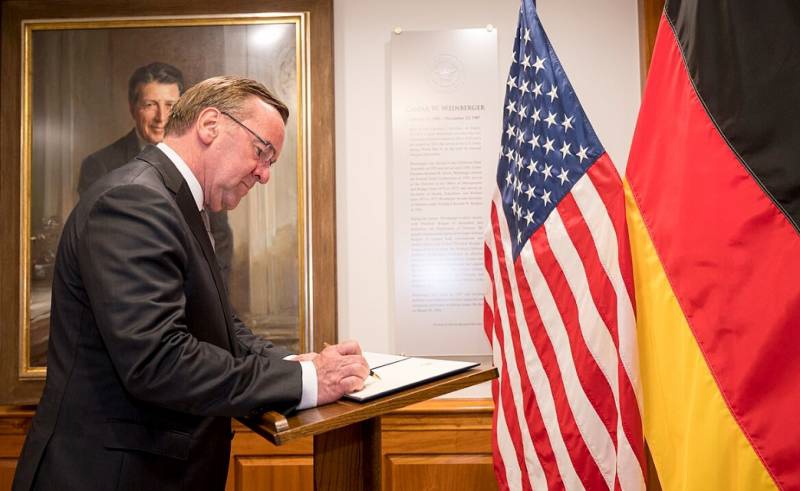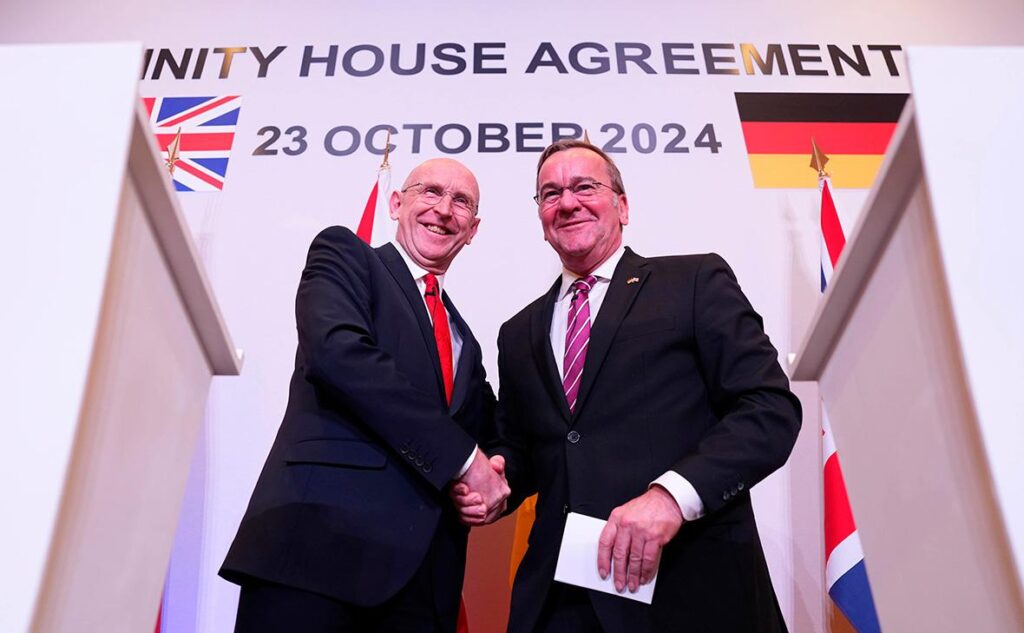The UK Germany Defence Agreement represents a significant milestone in European military cooperation. As two of Europe’s leading military powers, the United Kingdom and Germany have long collaborated on defense, but this formal agreement enhances their collective capabilities to address modern threats such as cyberattacks, terrorism, and conventional military aggression. It also reflects the growing importance of bilateral cooperation in an increasingly uncertain global security landscape, particularly following Brexit and shifting dynamics within NATO.
In this article, we’ll explore the origins of the UK-Germany defense agreement, its key elements, and its impact on European and global security.
Historical Context: UK-Germany Defence Relations
UK and Germany share a complex yet intertwined military history. During the 20th century, the two nations fought on opposite sides in both World Wars, but their post-war relationship transformed into one of cooperation, particularly as NATO allies during the Cold War. Germany’s role as a key NATO member and its strategic location at the heart of Europe made it a crucial partner for the UK, especially in countering the Soviet threat.
Over the decades, the UK and Germany have worked together in numerous international military operations, including in the Balkans, Afghanistan, and the fight against ISIS in Iraq and Syria. This history of cooperation laid the foundation for a deeper, more formalized defense partnership.
Read Also: uk germany defence agreement
Post-Brexit Military Cooperation
With the UK leaving the European Union following the Brexit referendum in 2016, questions arose about the future of the UK’s defense relationships with its European neighbors. The UK had traditionally played a leading role in European security initiatives, often serving as a bridge between the EU and NATO. Brexit, however, raised concerns about the UK’s continued involvement in EU-led defense initiatives such as the Permanent Structured Cooperation (PESCO) framework and the European Defence Fund.
Despite these uncertainties, the UK has maintained strong bilateral defense relationships with key European powers, particularly Germany. The UK-Germany Defence Agreement is seen as a continuation of these efforts, ensuring that the two countries can continue to collaborate on defense matters even outside the formal structures of the EU.
Key Elements of the UK-Germany Defence Agreement
While the full details of the UK-Germany Defence Agreement have not been publicly disclosed, several key areas of cooperation have been highlighted, including:
- Joint Military Exercises and Training: The agreement formalizes joint military exercises, enabling British and German forces to train together more frequently. This not only strengthens interoperability but also ensures that both countries are prepared to respond to potential threats in a coordinated manner.
- Cybersecurity and Information Sharing: In today’s world, cyber threats are just as significant as conventional military threats. The UK and Germany have recognized this and have agreed to enhance cooperation on cybersecurity, including the sharing of intelligence on cyber threats and best practices for protecting critical infrastructure.
- Defense Technology and Innovation: Another important aspect of the agreement is collaboration on defense technology and innovation. Both countries are investing heavily in developing next-generation military technologies, including drones, artificial intelligence (AI), and autonomous systems. By working together, the UK and Germany can share research and development costs while advancing their capabilities.
- Counterterrorism Efforts: The fight against terrorism remains a priority for both the UK and Germany, particularly in the aftermath of ISIS and other extremist groups. The agreement strengthens collaboration on counterterrorism operations, intelligence sharing, and coordination in combating terrorist networks.
- NATO Commitment: Both the UK and Germany are committed to maintaining their strong roles within NATO. The defense agreement reaffirms their dedication to the alliance’s principle of collective defense, as outlined in Article 5 of the NATO treaty. It also emphasizes the importance of working together to ensure NATO’s readiness to respond to threats from both state and non-state actors.
- Peacekeeping and Humanitarian Operations: The UK and Germany have both played significant roles in peacekeeping and humanitarian missions around the world. This agreement further commits both nations to collaborate on such missions, ensuring that they can respond quickly and effectively to global crises.

Strategic Importance of the Agreement
The UK-Germany Defence Agreement is significant for several reasons. First, it underscores the continued relevance of bilateral defense cooperation in an era of shifting geopolitical dynamics. The agreement ensures that the UK and Germany remain close defense partners despite the UK’s departure from the EU.
Second, the agreement serves as a model for how European countries can work together to address shared security challenges, particularly in the absence of the formal EU defense mechanisms. It reflects the importance of maintaining strong defense relationships across the continent, even as Europe grapples with a range of external threats, from Russian aggression in Eastern Europe to instability in the Middle East and North Africa.
Lastly, the agreement sends a message of unity and resolve to adversaries, particularly Russia and other actors who seek to destabilize European security. By formalizing their defense relationship, the UK and Germany demonstrate that they are prepared to stand together in the face of potential threats to European peace and stability.
Read Also: uk germany defence agreement
The Future of UK-Germany Defence Relations
Looking ahead, the UK-Germany Defence Agreement is likely to evolve as new threats and challenges emerge. Both countries are expected to continue deepening their cooperation in areas such as cyber defense, space security, and emerging technologies.
There is also the potential for expanded collaboration on defense procurement and military logistics. By pooling resources and coordinating procurement efforts, the UK and Germany can achieve greater efficiency and cost-effectiveness in developing and maintaining their military capabilities.
Additionally, as NATO looks to modernize and adapt to the challenges of the 21st century, the UK and Germany are likely to play key roles in shaping the alliance’s future direction. Their close defense partnership will be instrumental in ensuring that NATO remains capable of addressing both conventional and hybrid threats in the years to come.

Conclusion
The UK-Germany Defence Agreement represents a significant step forward in European defense cooperation. As two of Europe’s leading military powers, the UK and Germany are well-positioned to work together to address shared security challenges, from cyber threats and terrorism to conventional military aggression.
While the full impact of the agreement will only become clear in the coming years, it is already evident that the UK and Germany are committed to strengthening their defense partnership and ensuring that Europe remains secure in an increasingly uncertain world.



